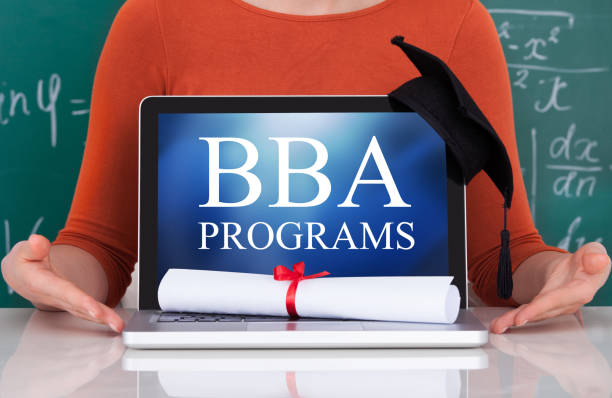How can I get a BBA degree certificate?
Get a BBA certificate course, the time and cost are adjustable. It is important to choose a path that suits your learning type and career plan. For me, it has been a journey of growth, and I hope you will also reap the same rewards.
If you're like me, someone who's been thinking seriously about career growth and long-term professional development, you've probably realized that a BBA degree certificate can open many doors. Whether you're aiming to climb the corporate ladder, switch industries, or even launch your own business, having that official certificate in hand is more than just a piece of paper—it's proof of your commitment, knowledge, and skill in the field of business administration.
When I started researching how to get a BBA degree certificate, I was a bit overwhelmed. There were so many options, terms I didn't fully understand, and programs that looked similar on the surface but varied greatly in cost, time, and credibility. So I decided to break the process down step by step, and now I'm here to share my experience to help you avoid the confusion I went through.
The first thing I realized is that there are two primary paths to getting a BBA certificate: enrolling in a full academic BBA degree program or pursuing an online accredited certification that validates your BBA-equivalent knowledge. If you're just starting your higher education journey, a traditional BBA program from a college or university is the most comprehensive route. This path typically takes around three to four years and includes foundational courses in marketing, finance, accounting, human resources, and management. Choosing a school with proper accreditation is crucial because employers value degrees from institutions that meet high educational standards.
However, not everyone can commit to a full-time degree. Like many working professionals or parents, I needed flexibility. That's when I turned to online programs. Accredited institutions now offer online BBA degree programs that are just as rigorous as in-person options. They allow you to study at your own pace, which was perfect for my schedule. These programs often provide downloadable certificates upon completion, and some even mail you a hard copy, which can be added to your resume or professional portfolio.
Some platforms also provide certification paths that mimic a BBA curriculum without requiring enrollment in a full degree program. For example, platforms like Coursera, edX, and LinkedIn Learning offer business administration specializations or micro-degrees. These are usually cheaper and quicker but can still be effective if you want to demonstrate competence in business subjects.
Before choosing any program, I made sure to verify the accreditation. I checked if the program was recognized by organizations like the AACSB (Association to Advance Collegiate Schools of Business) or if the platform partnered with established universities. It's important to avoid scams or unrecognized certificates that won't hold any weight with employers.
The next step was understanding the application requirements. For full degree programs, I needed to gather documents such as my high school diploma, transcripts, ID verification, and in some cases, proof of English language proficiency. Online certificate programs usually had fewer requirements—often just an account and payment. I appreciated how easy it was to get started with the latter.
I also had to consider costs. Full BBA programs can be expensive, especially if you attend a private or international school. However, I discovered many affordable and even free online options. Scholarships and financial aid were also available for some programs, which made the process less daunting.
Once I enrolled, I found that self-discipline was key. Whether you choose a full degree or a shorter certificate course, staying committed to deadlines and engaging with the course material is essential. I used digital planners, set weekly study goals, and joined online study groups to stay on track. Most programs also have forums and support networks, which helped me connect with peers who were going through the same journey.
After completing the program, receiving my BBA certificate felt incredibly rewarding. I immediately updated my LinkedIn profile and added the credential to my resume. Having that certificate gave me more confidence in interviews and helped me qualify for better job opportunities.
In summary, getting a BBA degree certificate is entirely possible and can be tailored to your personal schedule, budget, and career goals. Whether you go the traditional academic route or choose an accredited online program, what matters most is choosing a path that aligns with your learning style and professional aspirations. For me, the journey was empowering and opened new doors I never thought possible. And I believe it can do the same for you.
